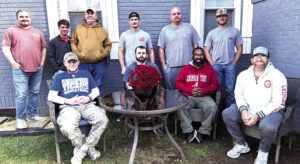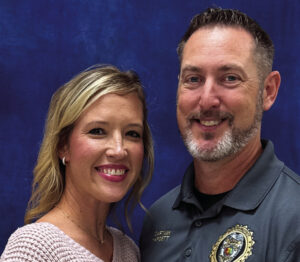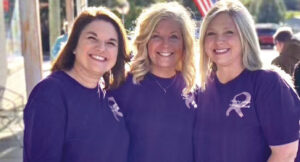Meeting clients wherever they are
RUSSELLVILLE — Health Connect America Program Director Emi Brown said the organization provides behavioral health services for people dealing with addiction and mental health challenges.
“We meet clients where they are, not where it’s convenient for us,” Brown said. “Anyone can come as they are, and we’ll help them reach their goals from there.”
Brown said the outpatient program centers on therapy — individual, group and family sessions — and includes psychoeducation and basic living skills, such as budgeting, parenting, household management and preparing for employment.
The center offers outpatient group sessions for adults and intensive outpatient groups for teens, who typically meet three times a week.
Each person begins with an assessment to determine their needs. Some are referred to inpatient care if that level of support is required. Others continue outpatient treatment and receive case management to help secure housing, transportation, or employment.
“Many of the people we see are referred by DHR, probation offices or the courts,” Brown said. “We’ve seen people come in with active substance use, complete the program, reunite with their children, find work and secure a place to live.”
Brown said recovery often takes six to nine months, though some stay longer.
“Recovery isn’t a straight path,” she said. “The important thing is to keep showing up and working toward the goals.”
The organization tracks success through follow-up surveys at six, nine and 12 months after program completion. Those checkins help staff measure progress in areas such as sobriety, reunification and employment.
Former clients sometimes return for additional support or step-down services, a process Brown said helps them sustain recovery over time.
Brown said Health Connect America employs licensed therapists and social workers with at least a master’s degree or certification in their field.
The Russellville office operates with nine fulltime staff members when fully staffed.
Clinical supervisor Tiana Welch said family involvement plays a key role in lasting success.
“Kids and teens need adults to help reinforce coping skills,” Welch said. “When families are involved, we see major positive changes.”
Health Connect America’s mental health program primarily serves minors and their families through individual and family therapy. Sessions take place in the office, at schools or through telehealth, depending on what works best for each family.
“We find that telehealth appointments can make it easier for working parents to stay involved,” Welch said. “Even a 30-minute check-in on a lunch break can make a difference.”
Brown said family participation is one of the most important factors in positive outcomes.
“When parents or caregivers are involved, we see children and teens make much stronger progress,” she said.
She said the work can be emotionally demanding but rewarding.
“We see people begin to believe they can stop repeating the same patterns their families,” Brown said. “That’s when change really starts.”
The Russellville office also operates a therapeutic foster care program and plans to launch autism services next year.
The program will provide in-home support for individuals on the autism spectrum and their families, focusing on individualized behavioral and communication goals.
“We’re excited to bring in-home autism services to this area,” Brown said. “It’s part of a state initiative to better serve individuals on the spectrum and their families.”
Health Connect America has been accredited through the National Council on Accreditation since 2012. The agency is certified with the state of Alabama as a behavioral health provider.
The organization also partners with local agencies such as DHR, probation offices and Safeplace.
Brown said the office keeps Safeplace contact information readily available to connect clients immediately when emergency shelter or safety is needed.
One service provided is blessing boxes, which are outdoor containers that allow people to take or leave donated items at any time.
Brown said the boxes will be stocked with canned goods and Narcan, an emergency medication that can reverse the effects of an opioid overdose when used correctly.
Narcan is administered as a nasal spray and can save a life if given quickly in an opioid-related emergency. Brown said the decision to include it came as fentanyl-related overdoses continue to rise across the nation and in Alabama.
She said the effort reflects the agency’s goal of supporting the community in practical ways.
“We want people to know help is here,” Brown said. “No one has to face recovery or mental health struggles alone.”











